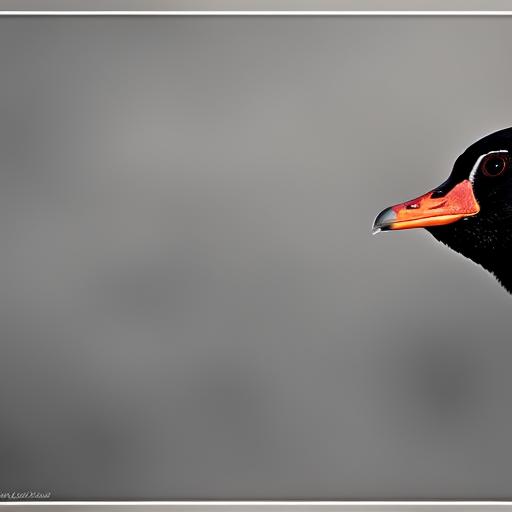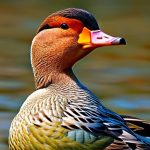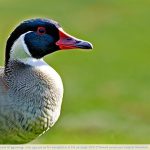Pet geese are known for their unique and sometimes challenging behavior. Understanding the behavior of pet geese is crucial for any owner looking to provide the best care for their feathered friends. Geese are social animals that form strong bonds with their flock and can be very protective of their territory. They are also known for their strong instincts and can be wary of strangers or new environments. Additionally, geese are highly intelligent animals and can be very vocal, using hissing as a form of communication. It’s important for pet owners to recognize that hissing is a natural behavior for geese and is often used as a warning signal to express discomfort or fear. By understanding the behavior of pet geese, owners can better address hissing behavior and create a safe and comfortable environment for their pets.
Pet geese are known for their strong instincts and social nature. They are highly protective of their territory and can be wary of strangers or new environments. Geese are also very vocal animals and use hissing as a form of communication. Hissing is often used as a warning signal to express discomfort or fear. It’s important for pet owners to recognize that hissing is a natural behavior for geese and is not necessarily a sign of aggression. By understanding the behavior of pet geese, owners can better address hissing behavior and create a safe and comfortable environment for their pets.
Key Takeaways
- Pet geese may hiss as a form of communication or to express discomfort or fear
- Hissing behavior in pet geese can be triggered by feeling threatened or territorial
- Address hissing behavior in pet geese by providing a calm and secure environment
- Training and socializing pet geese can help reduce hissing behavior
- Seek professional help if pet geese continue to exhibit persistent hissing behavior
Reasons why pet geese hiss
There are several reasons why pet geese may hiss, and understanding these reasons is essential for addressing this behavior. One common reason for hissing in pet geese is fear or discomfort. Geese may hiss when they feel threatened or when they are in an unfamiliar or stressful situation. Hissing can also be a way for geese to assert their dominance or protect their territory. Additionally, geese may hiss as a form of communication with other geese or with their human caretakers. It’s important for pet owners to recognize that hissing is a natural behavior for geese and is not necessarily a sign of aggression. By understanding the reasons why pet geese hiss, owners can better address this behavior and create a supportive environment for their pets.
There are several reasons why pet geese may hiss, and understanding these reasons is essential for addressing this behavior. One common reason for hissing in pet geese is fear or discomfort. Geese may hiss when they feel threatened or when they are in an unfamiliar or stressful situation. Hissing can also be a way for geese to assert their dominance or protect their territory. Additionally, geese may hiss as a form of communication with other geese or with their human caretakers. It’s important for pet owners to recognize that hissing is a natural behavior for geese and is not necessarily a sign of aggression. By understanding the reasons why pet geese hiss, owners can better address this behavior and create a supportive environment for their pets.
How to address hissing behavior in pet geese
Addressing hissing behavior in pet geese requires patience, understanding, and consistent training. One approach to addressing hissing behavior is to create a safe and comfortable environment for the geese. This can include providing ample space for the geese to roam, access to fresh water and nutritious food, and shelter from the elements. Additionally, it’s important to establish trust with the geese by spending time with them, speaking to them in a calm and reassuring manner, and avoiding sudden movements that may startle them. Another approach to addressing hissing behavior is to use positive reinforcement training techniques. This can involve rewarding the geese with treats or praise when they exhibit calm and non-hissing behavior. It’s important for pet owners to be patient and consistent in their approach to addressing hissing behavior in pet geese.
Addressing hissing behavior in pet geese requires patience, understanding, and consistent training. One approach to addressing hissing behavior is to create a safe and comfortable environment for the geese. This can include providing ample space for the geese to roam, access to fresh water and nutritious food, and shelter from the elements. Additionally, it’s important to establish trust with the geese by spending time with them, speaking to them in a calm and reassuring manner, and avoiding sudden movements that may startle them. Another approach to addressing hissing behavior is to use positive reinforcement training techniques. This can involve rewarding the geese with treats or praise when they exhibit calm and non-hissing behavior. It’s important for pet owners to be patient and consistent in their approach to addressing hissing behavior in pet geese.
Creating a safe and comfortable environment for pet geese
Creating a safe and comfortable environment for pet geese is essential for their well-being and can help reduce hissing behavior. Geese require ample space to roam and graze, so it’s important to provide a spacious outdoor area for them to explore. Access to fresh water is also crucial for geese, as they need to drink and bathe regularly. Providing nutritious food and shelter from the elements will help ensure that the geese are healthy and comfortable. Additionally, it’s important to protect the geese from potential predators by securing their enclosure with fencing or netting. By creating a safe and comfortable environment for pet geese, owners can help reduce stress and fear, which may contribute to hissing behavior.
Creating a safe and comfortable environment for pet geese is essential for their well-being and can help reduce hissing behavior. Geese require ample space to roam and graze, so it’s important to provide a spacious outdoor area for them to explore. Access to fresh water is also crucial for geese, as they need to drink and bathe regularly. Providing nutritious food and shelter from the elements will help ensure that the geese are healthy and comfortable. Additionally, it’s important to protect the geese from potential predators by securing their enclosure with fencing or netting. By creating a safe and comfortable environment for pet geese, owners can help reduce stress and fear, which may contribute to hissing behavior.
Training and socializing pet geese to reduce hissing
Training and socializing pet geese can help reduce hissing behavior and strengthen the bond between the geese and their human caretakers. Positive reinforcement training techniques can be used to encourage desired behaviors in the geese, such as remaining calm and non-hissing during interactions with humans. This can involve rewarding the geese with treats or praise when they exhibit calm behavior. Socializing the geese by spending time with them, speaking to them in a calm and reassuring manner, and avoiding sudden movements that may startle them can also help reduce hissing behavior. Additionally, introducing the geese to new experiences and environments in a gradual and controlled manner can help desensitize them to potential stressors that may trigger hissing.
Training and socializing pet geese can help reduce hissing behavior and strengthen the bond between the geese and their human caretakers. Positive reinforcement training techniques can be used to encourage desired behaviors in the geese, such as remaining calm and non-hissing during interactions with humans. This can involve rewarding the geese with treats or praise when they exhibit calm behavior. Socializing the geese by spending time with them, speaking to them in a calm and reassuring manner, and avoiding sudden movements that may startle them can also help reduce hissing behavior. Additionally, introducing the geese to new experiences and environments in a gradual and controlled manner can help desensitize them to potential stressors that may trigger hissing.
Seeking professional help for persistent hissing behavior

If pet owners are unable to address persistent hissing behavior in their geese on their own, seeking professional help from a veterinarian or animal behaviorist may be necessary. A veterinarian can assess the overall health of the geese and rule out any underlying medical conditions that may be contributing to the hissing behavior. An animal behaviorist can provide expert guidance on how to modify the environment, training techniques, or socialization strategies to address hissing behavior in pet geese. Additionally, professional help may be necessary if the hissing behavior poses a risk to the safety of the geese or their human caretakers. By seeking professional help for persistent hissing behavior in pet geese, owners can ensure that they are providing the best care for their feathered friends.
If pet owners are unable to address persistent hissing behavior in their geese on their own, seeking professional help from a veterinarian or animal behaviorist may be necessary. A veterinarian can assess the overall health of the geese and rule out any underlying medical conditions that may be contributing to the hissing behavior. An animal behaviorist can provide expert guidance on how to modify the environment, training techniques, or socialization strategies to address hissing behavior in pet geese. Additionally, professional help may be necessary if the hissing behavior poses a risk to the safety of the geese or their human caretakers. By seeking professional help for persistent hissing behavior in pet geese, owners can ensure that they are providing the best care for their feathered friends.
The benefits of having pet geese despite hissing behavior
Despite hissing behavior being a natural aspect of owning pet geese, there are numerous benefits to having these feathered companions as part of your household. Geese are highly intelligent animals that form strong bonds with their human caretakers and other members of their flock. They are also known for their loyalty and protective nature, making them excellent guardians of their territory. Additionally, pet geese can provide entertainment with their playful antics and vocalizations, adding joy and laughter to any home. Furthermore, owning pet geese can be an educational experience for both children and adults, teaching valuable lessons about empathy, responsibility, and animal care. Despite hissing being a part of their natural communication repertoire, having pet geese can bring immense joy and fulfillment to any household.
Despite hissing being a natural aspect of owning pet geese, there are numerous benefits to having these feathered companions as part of your household. Geese are highly intelligent animals that form strong bonds with their human caretakers and other members of their flock. They are also known for their loyalty and protective nature, making them excellent guardians of their territory. Additionally, pet geese can provide entertainment with their playful antics and vocalizations, adding joy and laughter to any home. Furthermore, owning pet geese can be an educational experience for both children and adults, teaching valuable lessons about empathy, responsibility, and animal care. Despite hissing being a part of their natural communication repertoire, having pet geese can bring immense joy and fulfillment to any household.
Despite hissing being a natural aspect of owning pet geese, there are numerous benefits to having these feathered companions as part of your household. Geese are highly intelligent animals that form strong bonds with their human caretakers and other members of their flock. They are also known for their loyalty and protective nature, making them excellent guardians of their territory. Additionally, pet geese can provide entertainment with their playful antics and vocalizations, adding joy and laughter to any home. Furthermore, owning pet geese can be an educational experience for both children and adults, teaching valuable lessons about empathy, responsibility, and animal care. Despite hissing being a part of their natural communication repertoire, having pet geese can bring immense joy and fulfillment to any household.
If you’re dealing with pet geese that keep hissing, it’s important to understand their behavior and needs. In addition to managing their behavior, it’s also crucial to ensure their well-being and proper care. For those interested in breeding geese, understanding the incubation period for goose eggs is essential. Poultry Wizard provides a comprehensive guide on this topic in their article “What Is the Incubation Period for Goose Eggs?” which offers valuable insights for anyone looking to raise geese.
FAQs
What are some reasons why pet geese hiss?
Geese may hiss as a form of communication, to express fear or aggression, or to establish dominance within their social group.
How can pet owners address hissing behavior in geese?
Pet owners can address hissing behavior in geese by providing proper training and socialization, creating a safe and comfortable environment, and seeking professional advice if necessary.
Are there any specific breeds of geese that are known for hissing more than others?
While individual temperament can vary, some breeds of geese, such as Chinese and Embden geese, are known to be more vocal and may hiss more frequently.
What are some signs that a pet goose may be feeling threatened or stressed?
Signs that a pet goose may be feeling threatened or stressed include hissing, fluffing up their feathers, lowering their head, and making aggressive gestures.
Can hissing behavior in pet geese be a sign of illness or discomfort?
Yes, hissing behavior in pet geese can sometimes be a sign of illness or discomfort. It’s important for pet owners to monitor their geese for any changes in behavior and seek veterinary care if needed.
Meet Walter, the feathered-friend fanatic of Florida! Nestled in the sunshine state, Walter struts through life with his feathered companions, clucking his way to happiness. With a coop that’s fancier than a five-star hotel, he’s the Don Juan of the chicken world. When he’s not teaching his hens to do the cha-cha, you’ll find him in a heated debate with his prized rooster, Sir Clucks-a-Lot. Walter’s poultry passion is no yolk; he’s the sunny-side-up guy you never knew you needed in your flock of friends!







